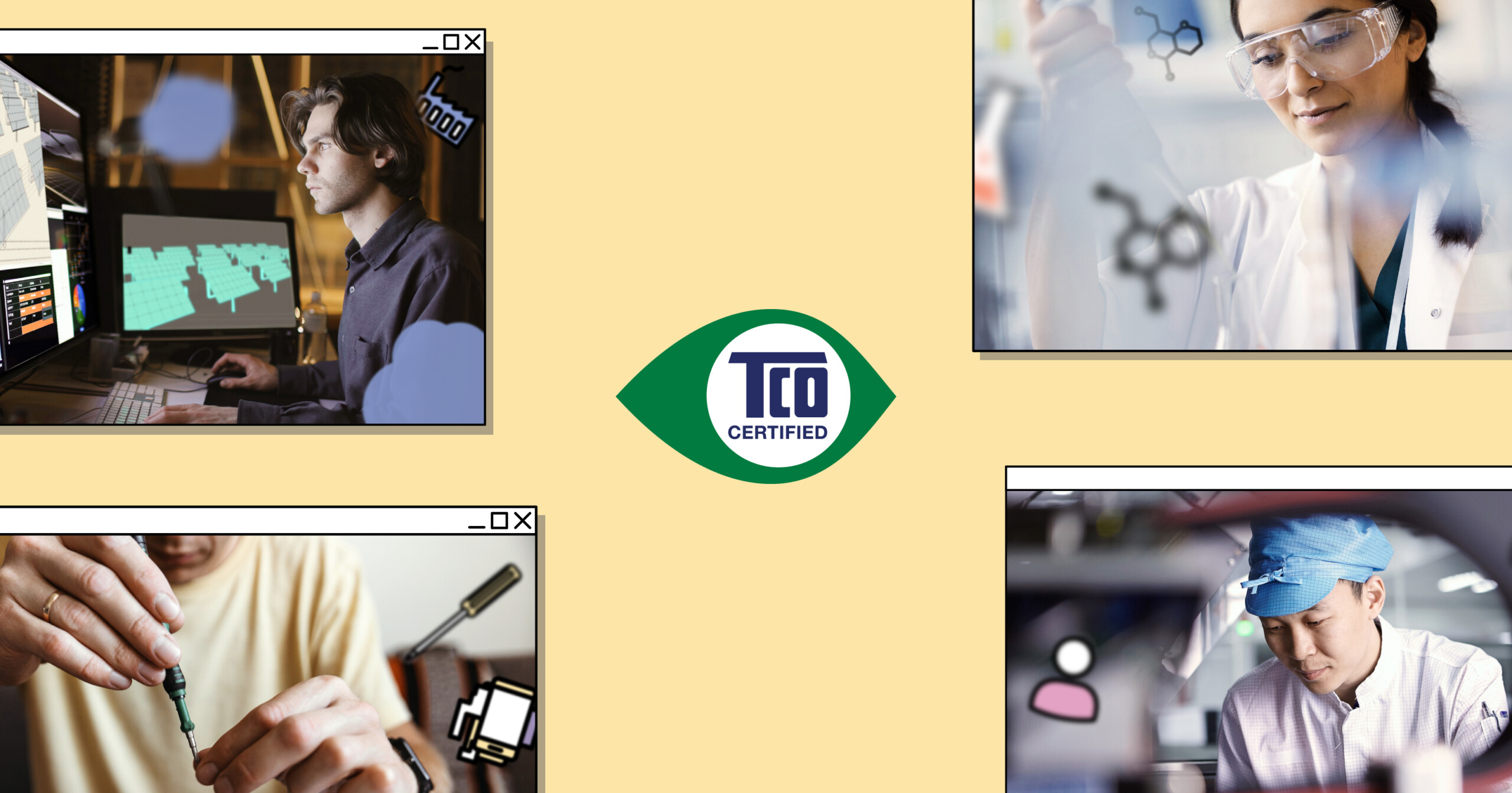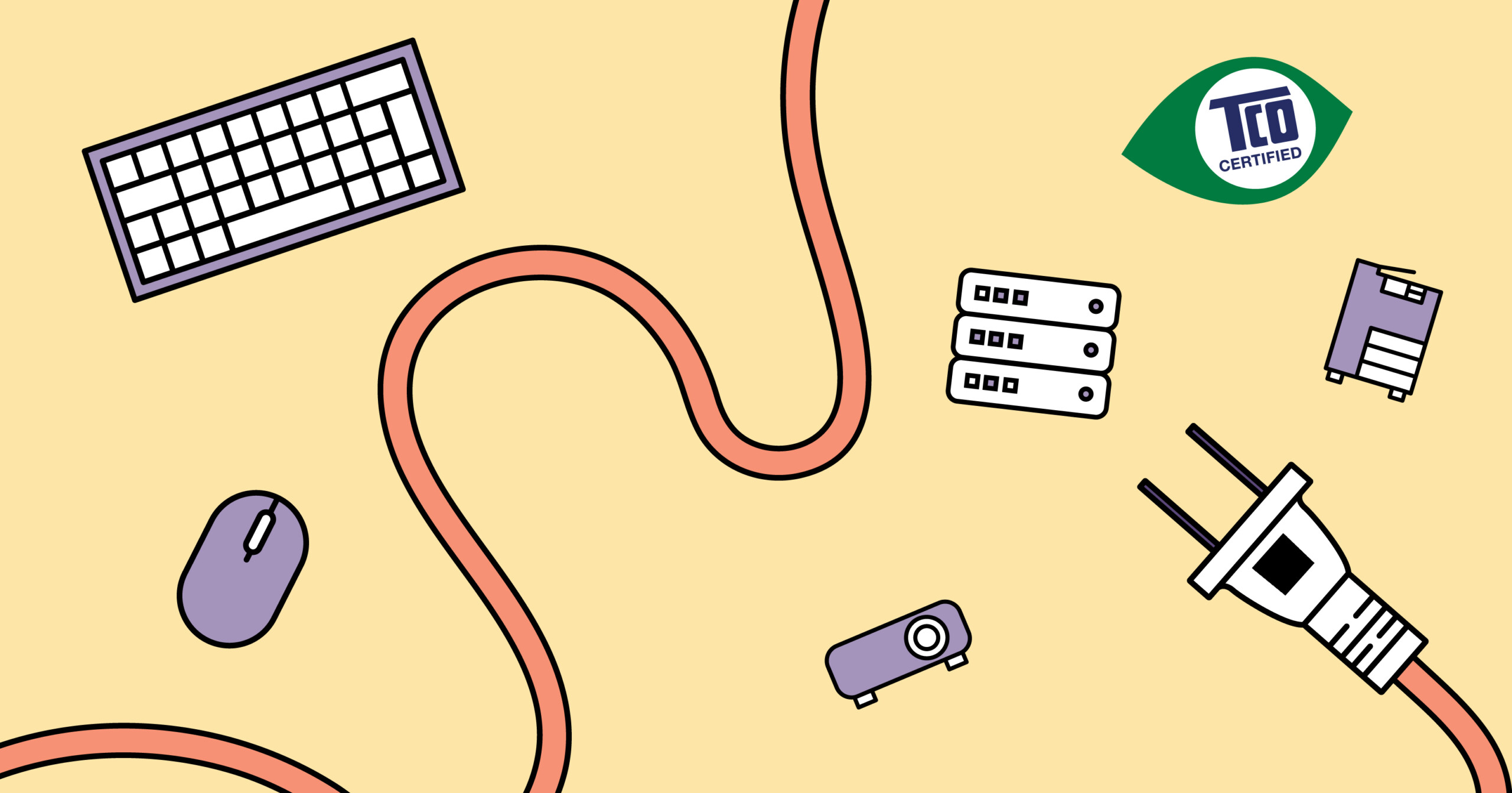This is an old press release and the information may be outdated
More buyers of smartphones and tablets should make sure they’re asking the major device brands for devices that are sustainably sustainably designed and made. Niclas Rydell of sustainability certification organization TCO Development believes this buyer influence is critical is turning the tide of mounting environmental and social challenges associated with our increased use of mobile computing products.
Our increased ability to work and carry out daily tasks online has in many ways made our lives easier. The increase in digital activity has also led to a dramatic rise in the use of tablets and smartphones as our go-to devices for getting things done quickly and easily. Almost equally as rapid is the trend of frequently upgrading devices -sometimes as often as every year.
There are however downsides to our mobile lifestyle. Increased demand and shorter product life cycles are causing an upswing in the use of raw materials during the life cycle of the device. As we upgrade or discard obsolete products at an alarming pace, the already large amounts of electronic waste grow and present a challenge in how to deal with this waste in a safe, sustainable way.
Electronics involves a complex supply chain – often as many as 60 manufacturing stages for a mobile device. We are also seeing more cost and time to market pressures among the brands, as they race to get the latest technologies in the hands of users at the lowest cost. Too often the consequence is poor working conditions and environmental hazards for workers in facilities where the devices are made.
Negative effects can also be found at the other end of the life cycle. IT products are recycled at a relatively low rate – between 10-40 percent in the USA as an example. While there has been a recent upswing in recycling, the export and uncontrolled handling of IT products continues to rise. This has led to significant health and environmental risks to vulnerable populations around the world. By extending the life of our smartphones and tablets we could stem the flow of e-waste, which is today the fastest growing waste stream in the world.
Beginning in 2012, TCO Development has included criteria for socially responsible manufacturing in the TCO Certified sustainability certification for IT products. The criteria require that manufacturers follow the ILO Core Conventions and other key regulations and conventions for worker rights and protections. So far we have observed 17 IT brands that have begun to work toward these requirements and we are able to confirm an increase in transparency in our dialog with industry after this responsibility was placed upon them. The evidence so far points to a greater commitment and improved dialog between IT brands and their suppliers. One step several brands have begun to take is to be more transparent with their supply chain, following in the footsteps of the textile industry.
While significant gaps in worker rights and conditions remain among the IT brands, a combination of corrective actions like these can bring about change.
The demand and cost of raw materials is rising. As IT brands begin to introduce more sustainable practices and products, we’re also beginning to see a rise in the use of recycled materials in new devices. Replacing resource-heavy virgin materials with recycled plastic for example can lower the amount of raw materials required as well as lower Co2 emissions during manufacturing, both of which help reduce the overall environmental burden of electronic products.
The role of the buyer is important in shaping a more sustainable, responsible IT industry. Consumers and Professional IT buyers alike should communicate with their IT brands and vendors about their demand for more responsible manufacturing and recycling of the products they offer. We as purchasers can begin to give environmental and social responsibility factors equal priority with price and performance greater importance when selecting IT products. By doing this we can make a step in the right direction and increase demand for electronics that are designed for a more sustainable life cycle – from product design, through manufacturing, use and recycling.
With the help of market-based, voluntary initiatives we will be able to influence the IT industry by signaling a demand for more IT products that show sustainability attributes in all stages of the life cycle. For industry, it’s an opportunity to show that it’s just as innovative and smart as the devices we use every day.
/ Niclas Rydell, Manager, TCO Certfied sustainability certification, TCO Development
Originally published on June 19, 2014 in Telekom Idag (Telecom Today)
Together toward sustainable IT
TCO Certified is the global sustainability certification for IT products, empowering both IT buyers and brands to make more responsible choices. Our comprehensive criteria are designed to drive social and environmental responsibility and are updated continuously to push sustainability where it matters most. Compliance with all criteria is always independently verified for every product. Our Roadmap for Sustainable IT is the long-term plan for addressing issues in four key areas: climate, substances, circularity and supply chain. By using TCO Certified, you join a global movement for sustainable IT.
Contact
Dennis Svärd, Global PR Manager
dennis.svard@tcodevelopment.com
Mobile: +46 (0) 704 804 094


